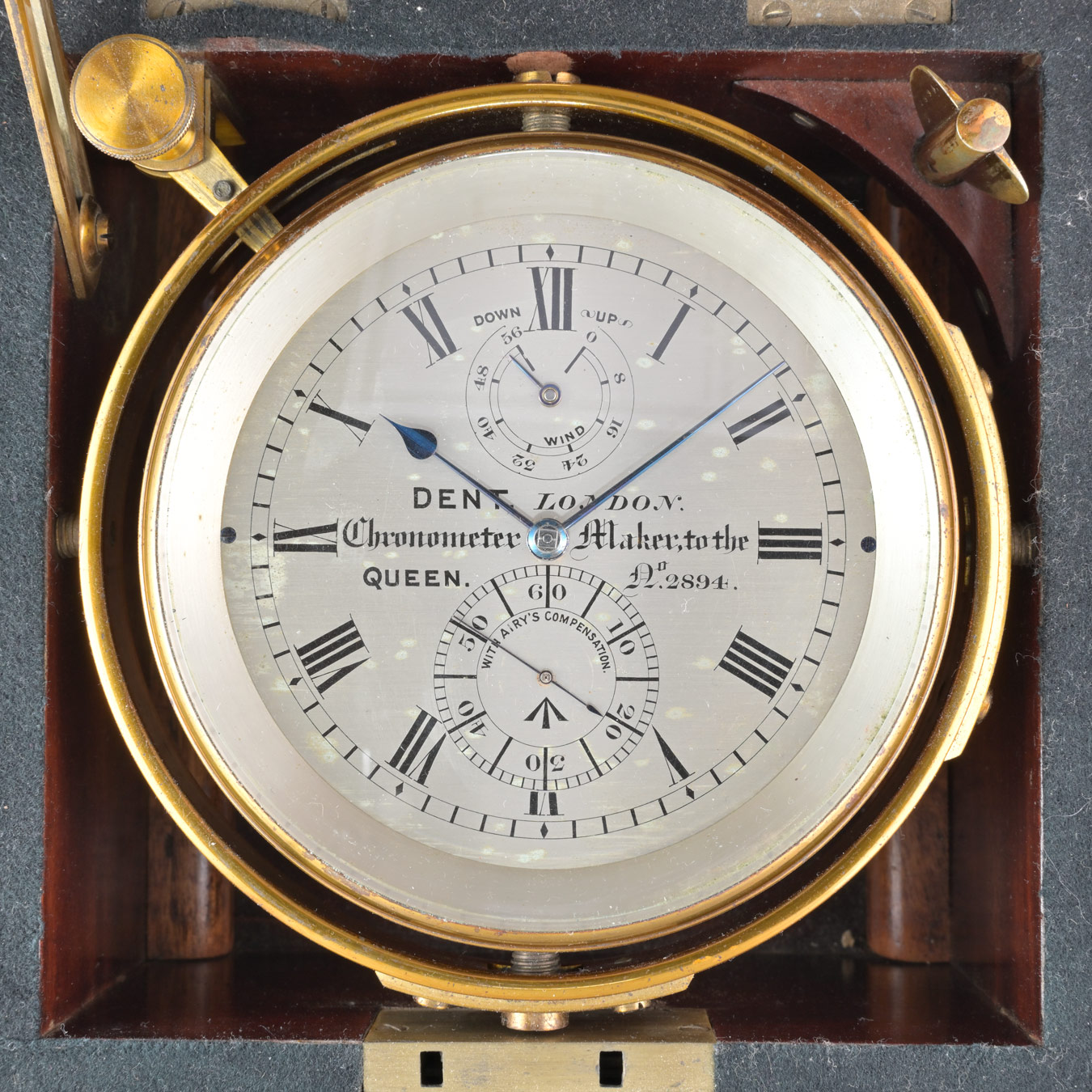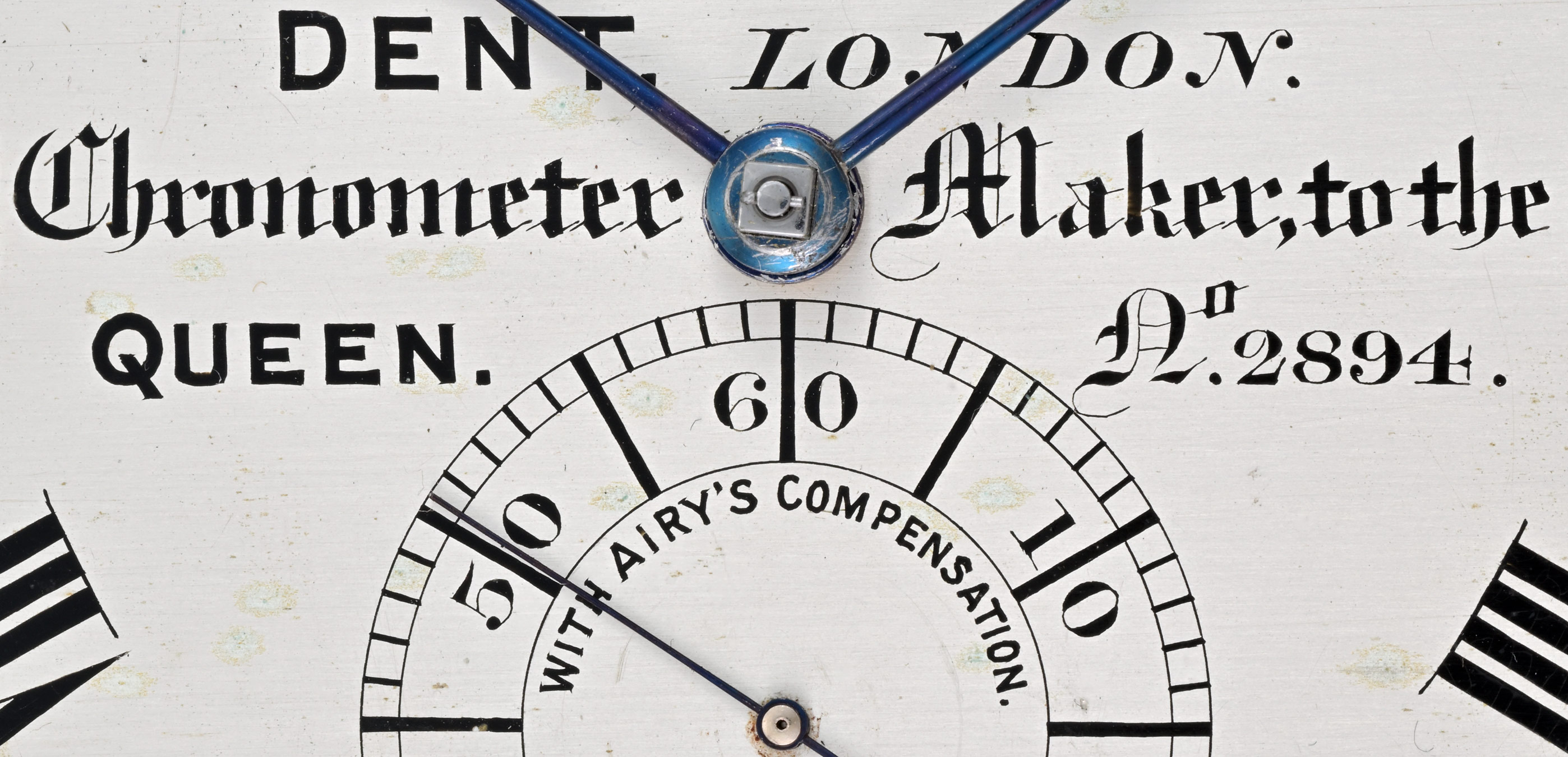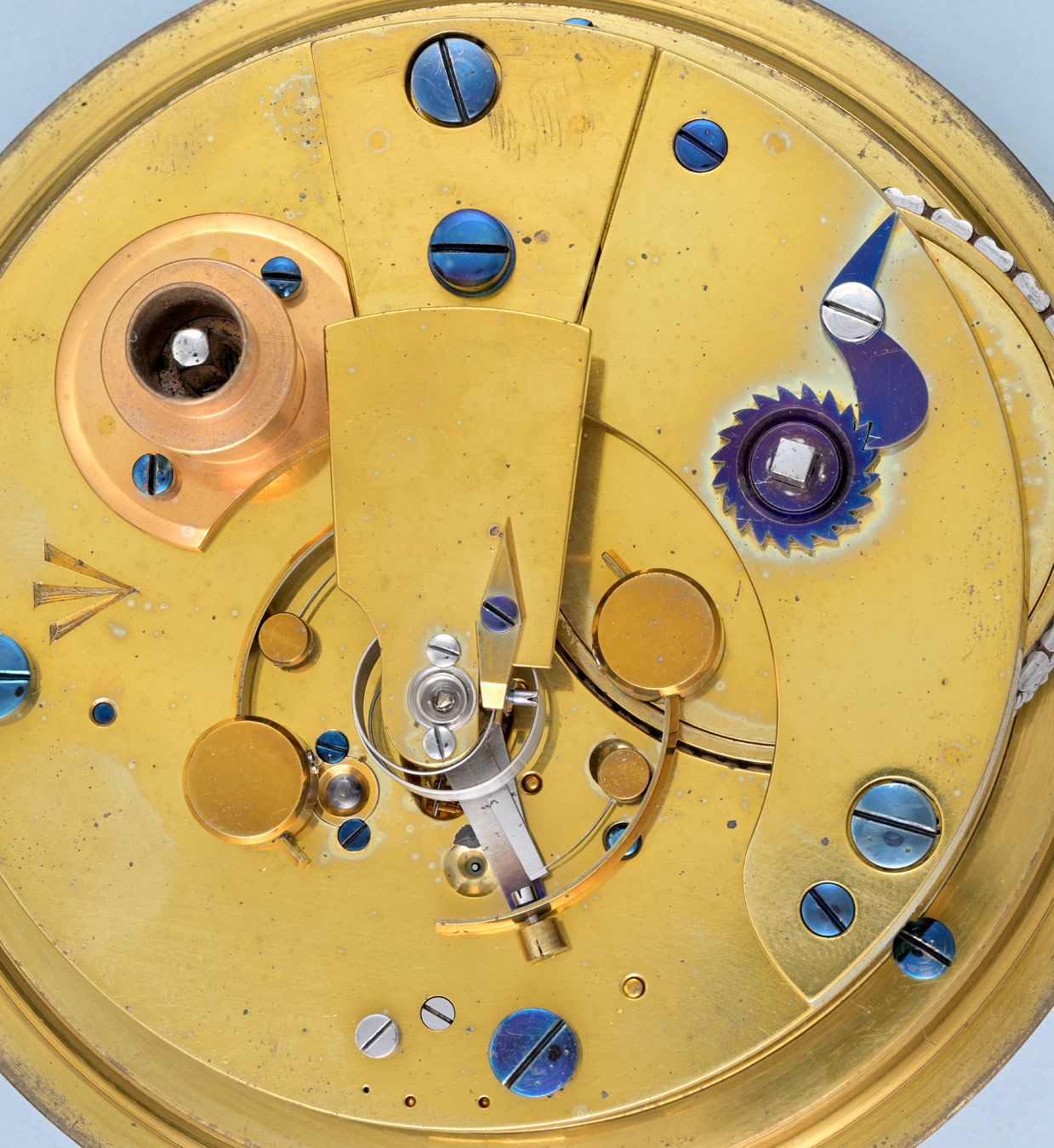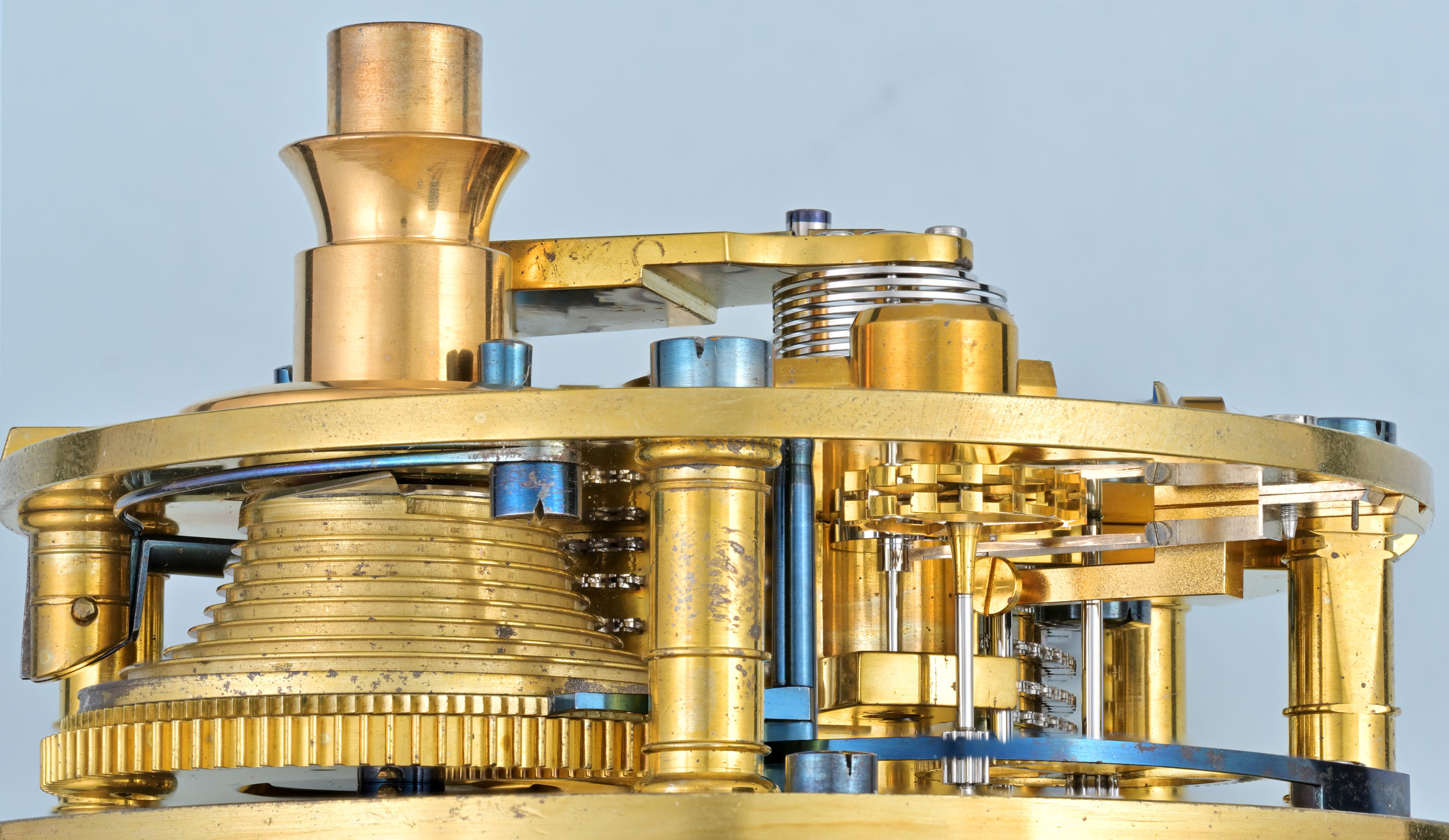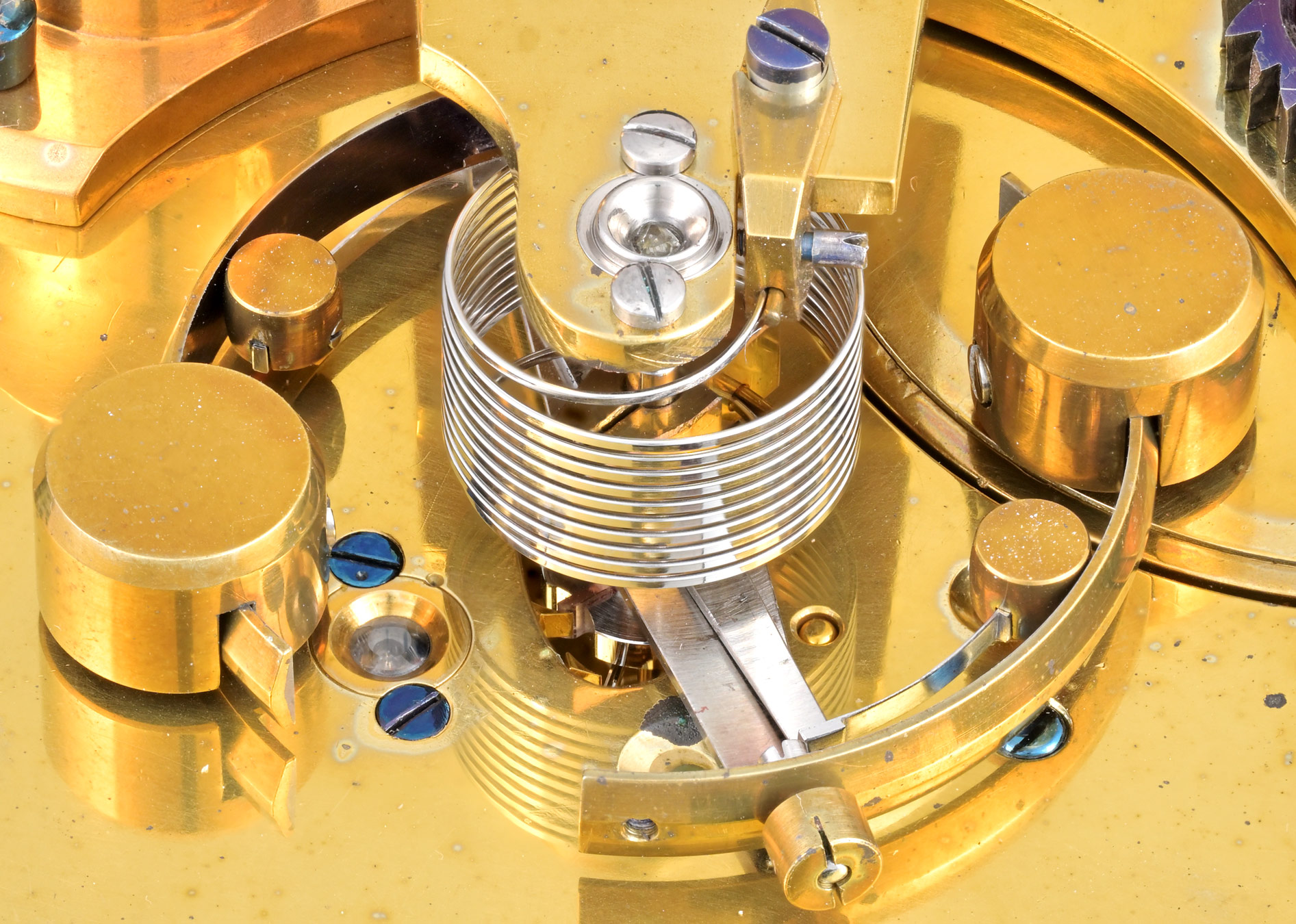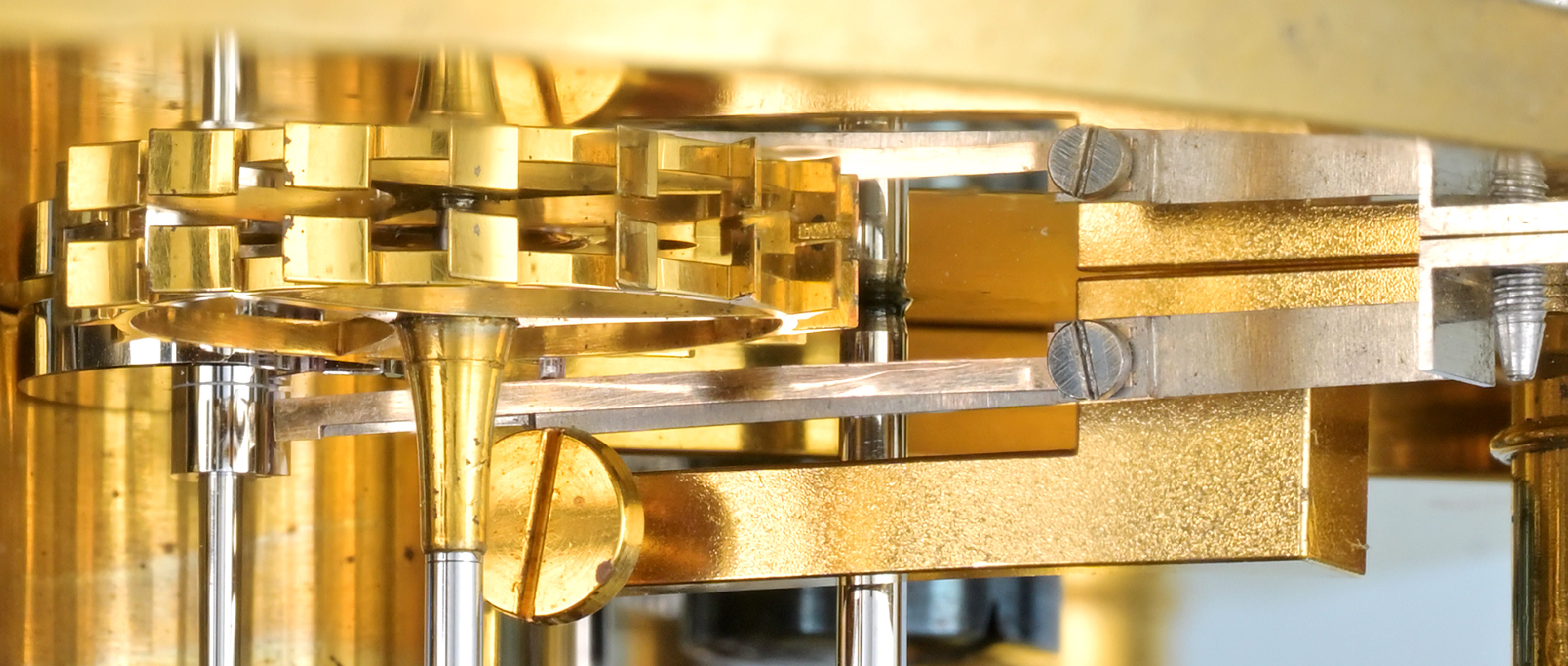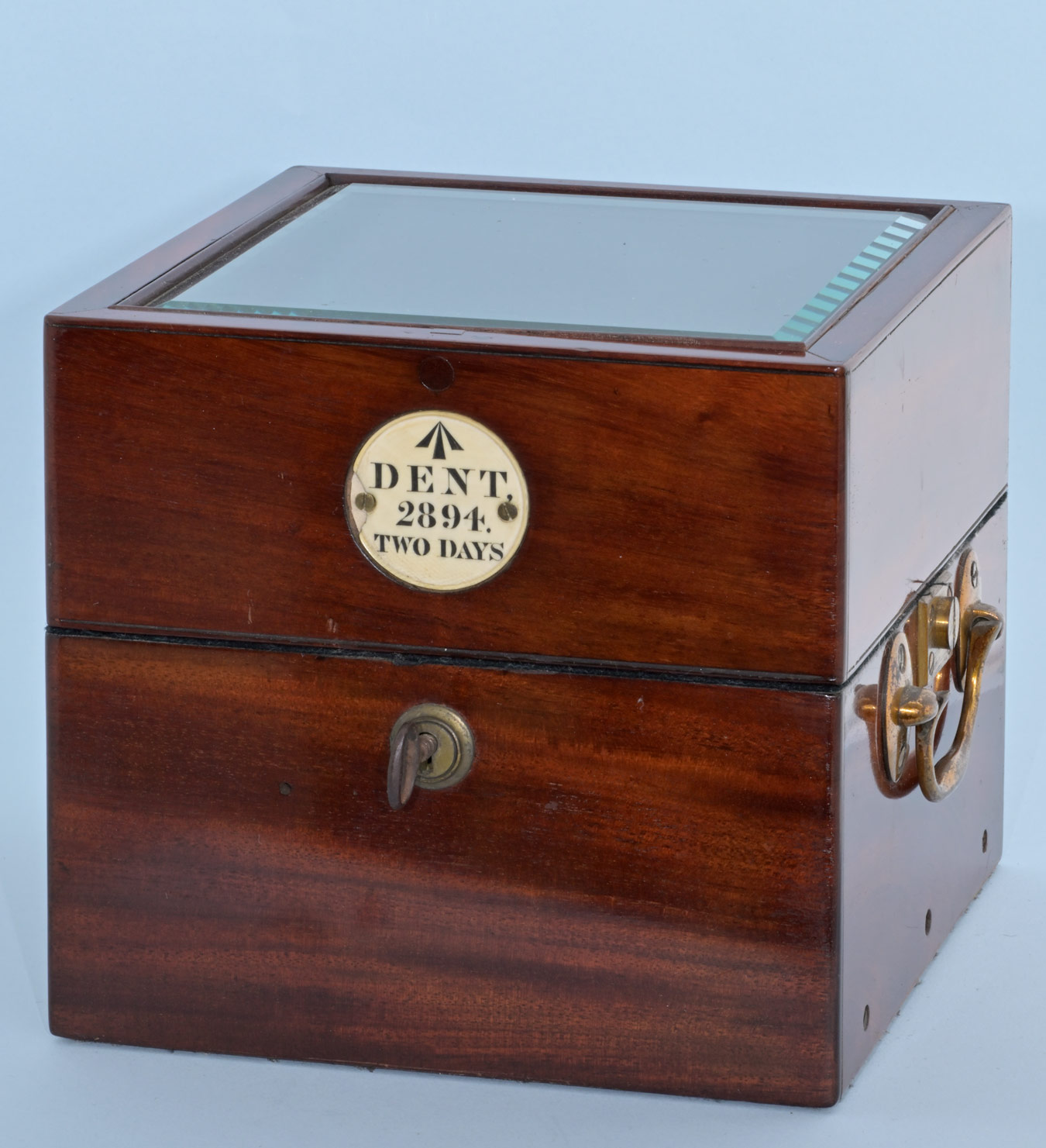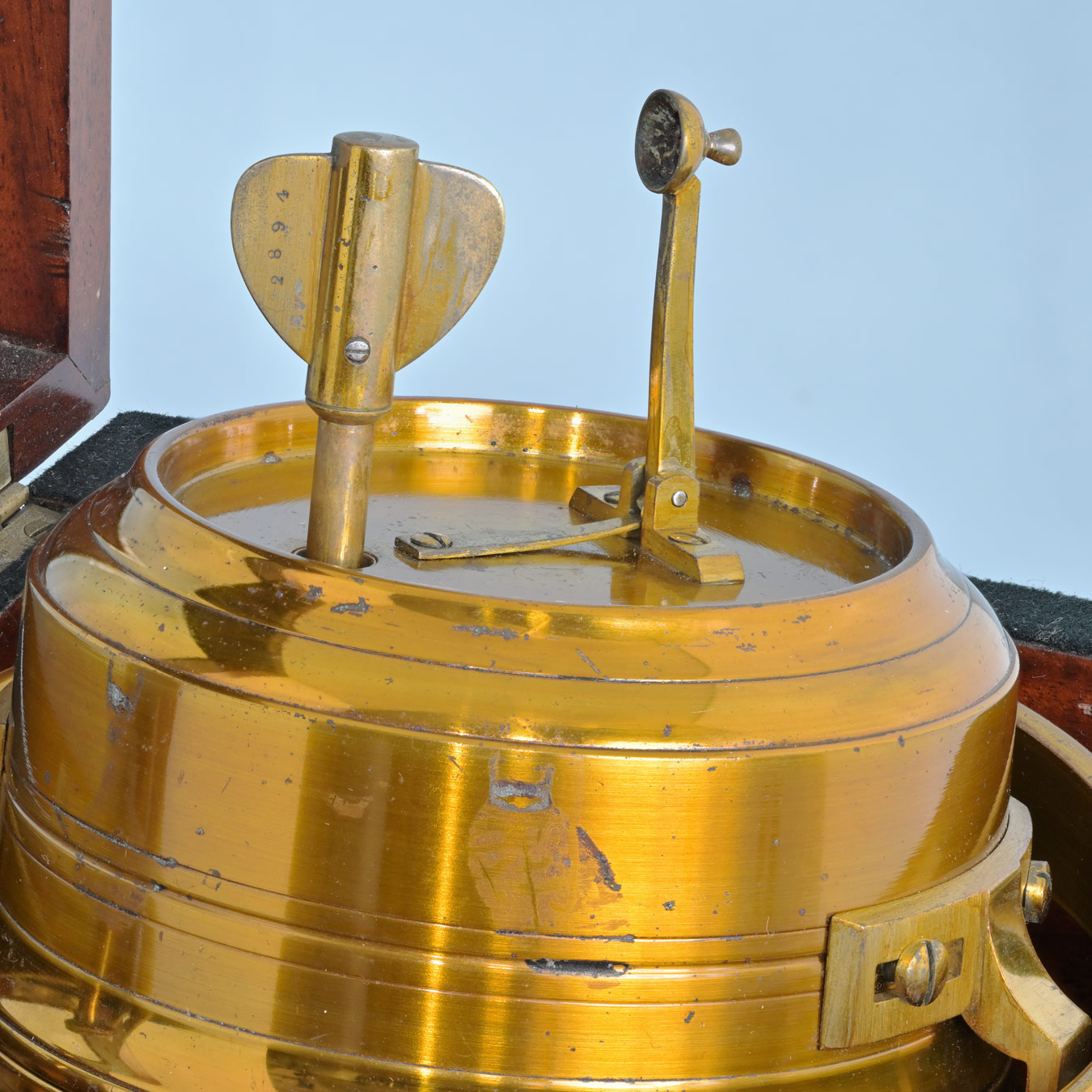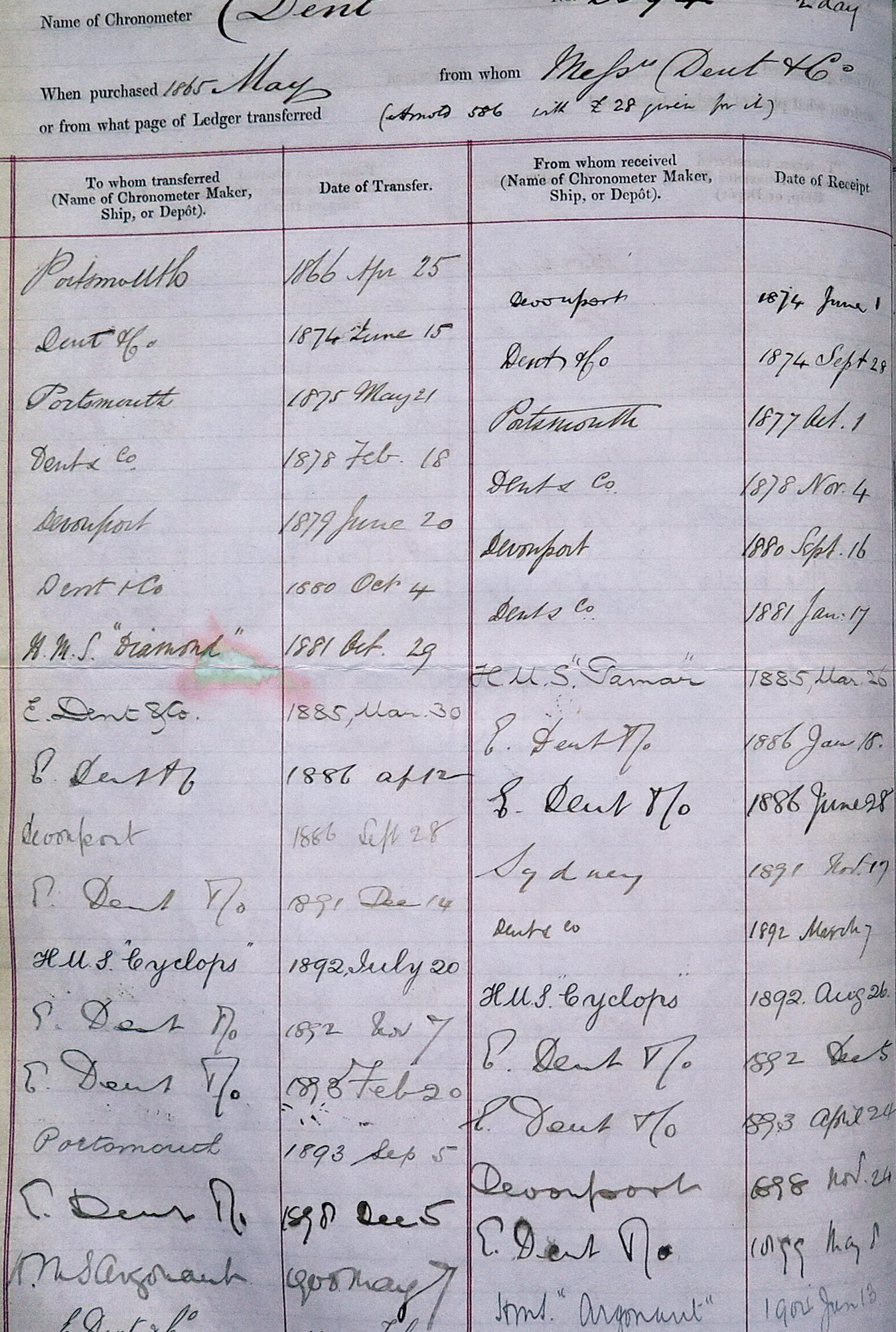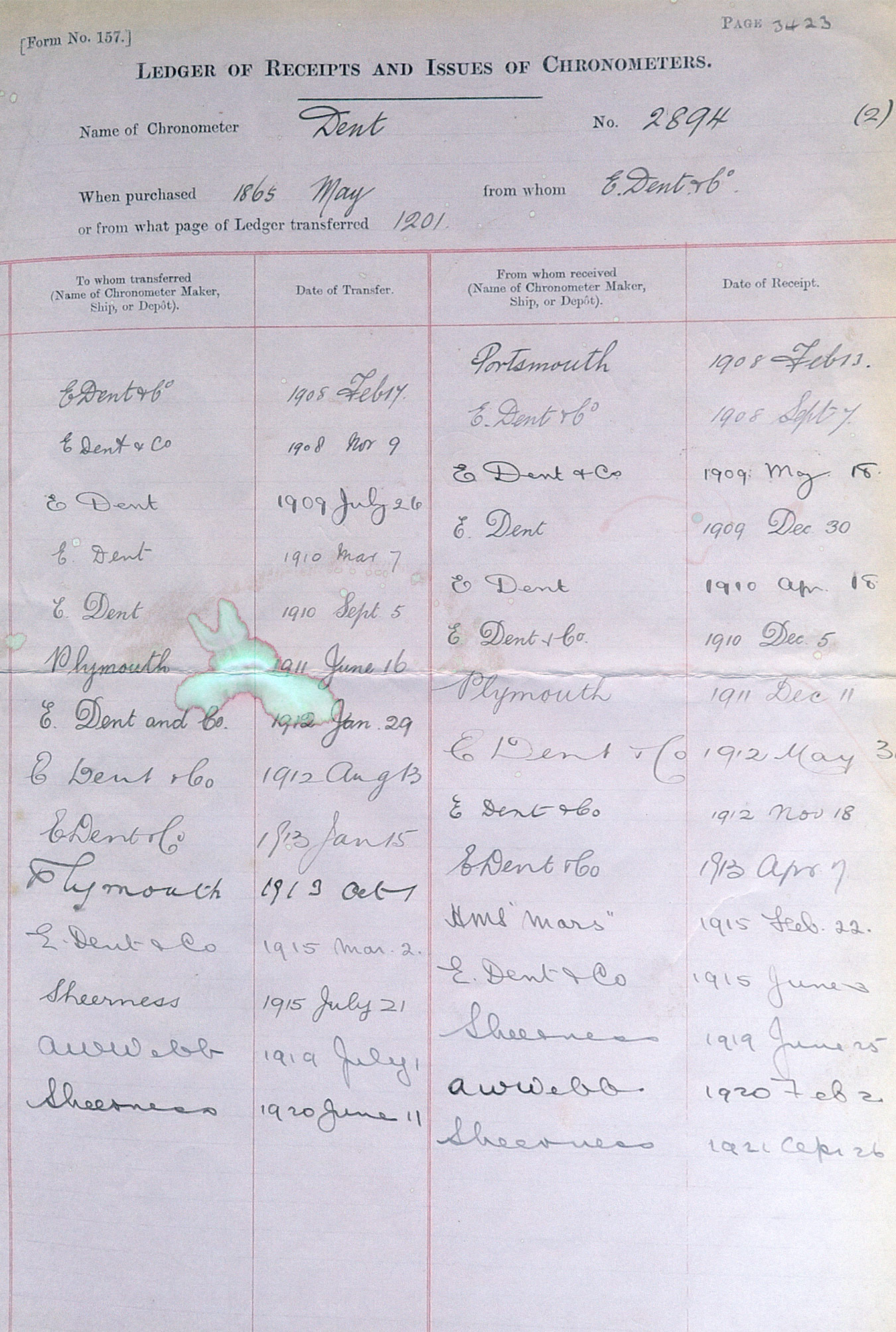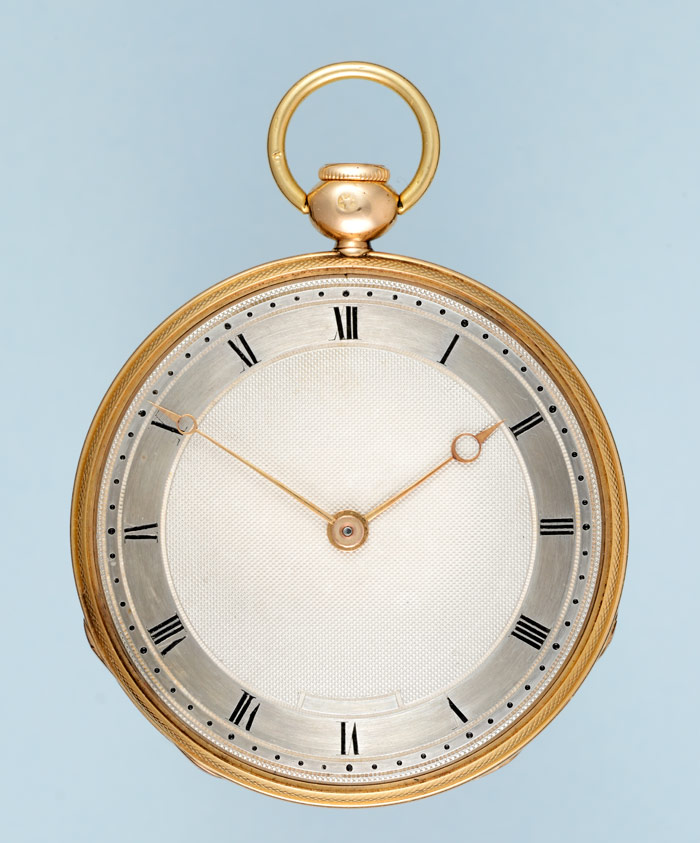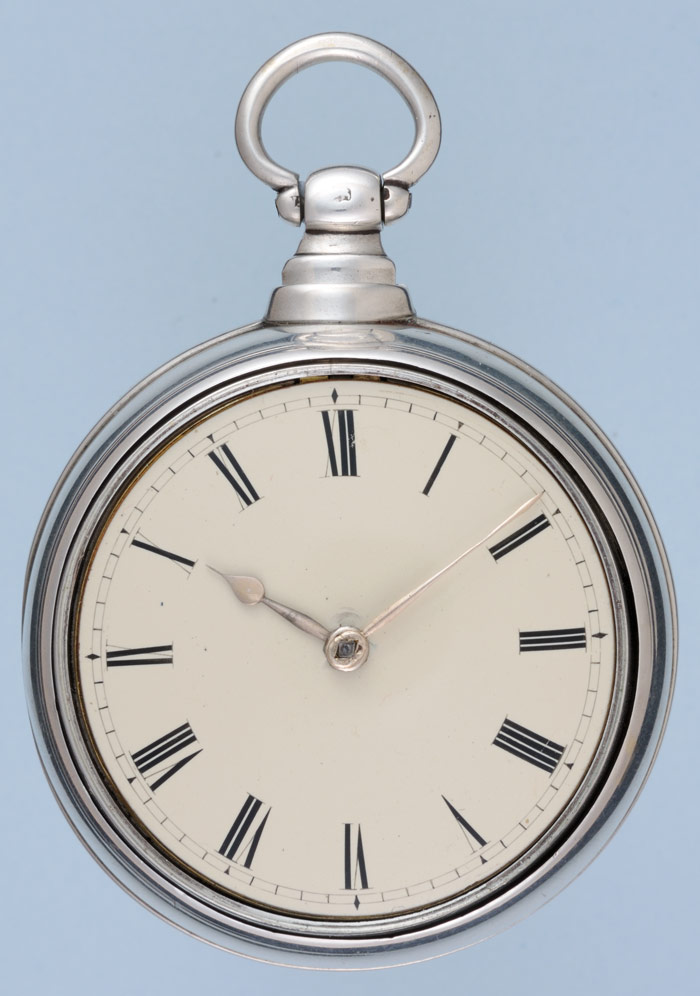A10972
Dent Marine Chronometer with Airy’s Bar
£11,000.00
Circa 1860
Diameter [dial] 102 mm
1 in stock
Description
A mid 19th Century English two day marine chronometer by Dent with Airy’s bar in a mahogany box. Full plate brass keywind fusee movement, four turned pillars secured by blue steel screws, engraved broad Ministry arrow. Harrison’s maintaining power with blue steel click and spring, blue steel barrel ratchet wheel and double toothed click on the barrel bridge. Plain brass cock, diamond endstone, two arm compensation balance with two circular weights and two timing nuts, Airy’s bar with two smaller circular weights resting against the rim. Freesprung palladium helical hairspring. Earnshaw spring detent escapement, escape pivots with endstones. The movement secured to the gilt dial plate by three blue steel screws. Engraved signed and numbered silvered brass dial with subsidiaries for seconds and power reserve indication. Broad Ministry arrow in the seconds subsidiary, Roman numerals, blue steel hands. Signed and numbered turned brass bowl, sprung hinged dust cover to the winding aperture. Screw brass bezel with flat glass. Brass gimbals and locking mechanism, numbered brass ratchet key. Two tier mahogany box, the top lid having been removed in common with most Ministry marine chronometers. Signed and numbered circular plaque with the broad Ministry arrow, folding brass handles.
Related products
-
Gold Quarter Repeating French Cylinder Pocket Watch

An early 19th Century French quarter repeating cylinder with silver engine turned dial in a gold open face case. Keywind gilt bar movement with suspended going barrel. Plain cock with polished steel regulator. plain three arm gilt balance with blue steel spiral hairspring. Polished steel cylinder, steel escape wheel. Push pendant quarter repeating on two polished steel gongs. white enamel dial with Roman numerals, gold Breguet hands. Engine turned gold open face case with engine turned middle and bezels. Gold repeating push in the pendant which is pulled out and twisted a quarter of a turn before use. Wound and set through the signed gold cuvette.
An attractive small watch in the style of Breguet in excellent overall conditionCirca 1830£3,500.00 Add to cart -
Silver Pair Cased Rack Lever Pocket Watch

An early 19th Century English rack lever in silver pair cases. Full plate gilt keywind fusee movement with plain gilt dust cover. Chased and engraved cock inscribed “Patent” on the foot, diamond endstone, blue steel Bosley regulator. Plain three arm steel balance with blue steel spiral hairspring. English rack lever escapement, adjustable slides to the lever pivots, large thirty tooth escape wheel. Off white enamel dial with Roman numerals, gilt hands. Fitted in matching silver pair cases hallmarked Birmingham 1839. Silver oval pendant and bow, maker's mark “VR”.
Circa 1810£850.00 Add to cart -
Unusual Night Light Watch Holder

An unusual late 19th Century German watch holder and night light in the form of a gas lamp post. Cast square base and body. The square lamp at the top of the post with clear glass candle holder. The cast hipped roof pierced to allow a small candle to burn inside. Small wire hook just below the lamp to hang the watch. (Watch not included)
A most interesting and unusual piece. It is doubtful that the candle would have lasted the whole night. As a modern replacement a small LED could probably be used in its placeCirca 1900£450.00 Add to cart





